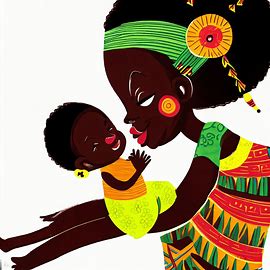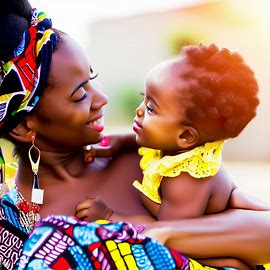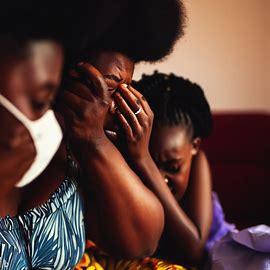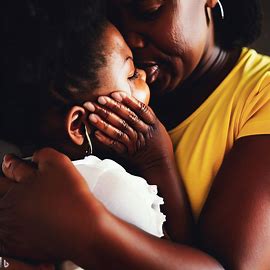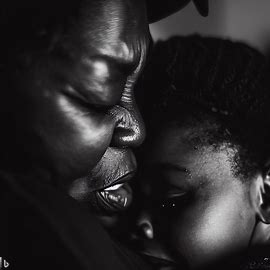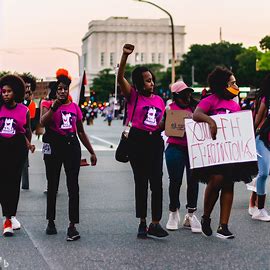Introduction
Myths about Black women have played a complex and enduring role in shaping societal attitudes and policies. These myths, deeply entrenched in history and perpetuated by systemic racism, serve to uphold racial capitalism and white supremacy. In this article, we delve into the multifaceted functions of these myths, their consequences for Black women’s health, and the potential for hope and abolition to dismantle these harmful narratives.
Myths Uphold Racial Capitalism and White Supremacy & Justifying Historical Injustices
One of the primary functions of myths about Black women is to justify the egregious historical injustices inflicted upon Black people. Enslavement, dispossession, and even extermination were rationalized through these myths, perpetuating the idea that Black lives were inherently less valuable. These dehumanizing narratives underpinned the exploitation and brutality of slavery, shaping the course of history.
Blaming Black Women
Myths further cast Black women’s sexuality and childbearing as the source of Black deprivation and social problems. These stereotypes wrongfully place the blame on Black mothers for the socioeconomic challenges faced by their communities. This vilification contributes to the marginalization of Black women and distracts from the root causes of inequality.
Obscuring Structural Inequality
Myths have a knack for obscuring the harsh realities of poverty and structural inequality that disproportionately affect Black communities. By placing blame on Black mothers, these narratives divert attention away from the systemic issues that perpetuate disparities in education, employment, and housing.
Prosecuting Black Mothers
Shockingly, these myths are even used to prosecute Black mothers for drug use during pregnancy, perpetuating the damaging narrative of “crack babies.” Instead of addressing the root causes of addiction and providing support, punitive measures are employed, exacerbating the cycle of incarceration and disempowerment.
Myths Obscure the Need for Radical Change and Criminalize Resistance & Aid in Regulating Black Women
Rather than focusing on radical reforms to address inequality, myths about Black women often center on regulating their lives and choices. This perpetuates a cycle of control and surveillance, further entrenching racial disparities.
Criminalizing Pregnancy
Perhaps even more troubling is the fact that prosecutions of Black mothers set a dangerous precedent for the broader criminalization of pregnancy. Instead of viewing pregnancy as a moment of care and support, it becomes a legal battleground, disproportionately impacting Black women.
Contradictions in Myths About Black Mothers made to Deter and Restrict
There exists a troubling contradiction in the way society addresses Black childbearing. On one hand, there are efforts to deter Black women from having children, while on the other, access to reproductive autonomy is denied. These contradictory policies serve the overarching goal of controlling Black women’s bodies.
Devaluing and Separating
Historically, enslavers justified the separation of Black families by claiming that Black people couldn’t form emotional bonds with their children. Astonishingly, similar beliefs persist today, with doctors more likely to suspect abuse and remove Black children from their families.
Consequences for Black Women’s Health &
Race-Based Medicine
Myths surrounding race-based medicine harm Black patients by influencing diagnostic and treatment decisions based on race. This practice leads to undertreatment and disparities in healthcare outcomes.
Undertreatment of Pain
Biological myths about racial differences in skin and nerves lead to inadequate pain relief for Black patients, perpetuating their suffering and diminishing their trust in the healthcare system.
Maternal Health Disparities
Racial biases contribute to maternal health disparities, including the overuse of C-sections, undertreatment of anemia, and alarmingly high mortality rates among Black mothers.
Hope /Abolition & Policing and Criminalization
The child welfare system often polices and criminalizes Black families, disrupting their lives through forced removals and perpetuating cycles of trauma.
Integration with Law Enforcement
Collaboration contracts between child welfare and law enforcement have integrated family policing with the criminal justice system, creating a web of systemic injustice.
Disciplined Hope
Despite the resilience of racism, hope remains a powerful force for change. It is grounded in political analysis and a vision of more compassionate approaches to child welfare.
Caring, Humane Approaches
There are examples of community-based child welfare initiatives that seek to disconnect from state policing, offering a vision of more caring and humane approaches to supporting families.
Conclusion
Myths about Black women have profound and far-reaching consequences. They perpetuate racial capitalism and white supremacy, deflect from structural inequality, and harm Black women’s health. However, through disciplined hope and a commitment to more compassionate approaches, we can challenge and ultimately dismantle these harmful narratives, working towards a more just and equitable society for all.
The key to dismantling these harmful myths is multifaceted education and activism. Comprehensive anti-racism training should be implemented in schools, workplaces, and the medical field to directly counter biological myths and stereotypes. History classes must present accurate accounts of slavery, racism, and resistance. Greater investment is needed for community-based health clinics and non-carceral child welfare programs designed by and for Black communities.
Activism can awaken society to the resilient myths that shape policies and beliefs. Protests and campaigns led by Black women can influence media representation, reproductive rights, and maternal healthcare. Grassroots mutual aid networks can provide practical support outside oppressive systems. Diverse coalitions should advocate for bold reforms of foster care, social services, and criminal justice.
Ultimately, progress requires reckoning with entrenched racism and listening to Black experiences. Dismantling the legacy of white supremacy in America’s systems, mindsets, and power structures is the only way to stop weaponizing Black motherhood. With sustained solidarity, accountability, and action, a more racially equitable future is possible. But it begins by unlearning the myths.


